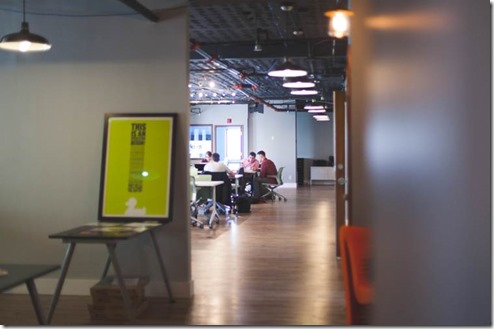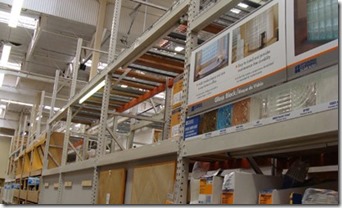Open-plan offices have a reputation for being cool, collaborative spaces where creativity breeds, ideas fly free and everyone is one big happy family. Popularised during the 1950s to help facilitate communication within a company, this open-plan layout has remained a fixture in many modern workplaces all over the world.
However, the assumption that all employees work best in this open environment is contentious, as study after study highlights the health risks of working in an open-plan layout. From this, it has become apparent that ongoing close contact with colleagues in the office doesn’t always generate the most productive situations.
Health hazard #1: germs
It starts with a quiet cough or a little sneeze, and by the end of the week the sound of blowing noses is echoing throughout the entire office.
The Centre for Economics and Business Research conducted a study into unhygienic workplaces a few years ago and found that germs are costing Australian businesses $5.4 billion annually – and that workers are taking nearly two sick days off per year as a result of poor hygiene. This is especially significant for small businesses, where one bout of flu could leave most team members bedridden and affect deadlines, revenue, and overall productivity.
Health hazard #2: privacy
Of course, physical health isn’t the only way your office could be making you ill. The very set-up of an open-plan office, once thought to be beneficial for working relationships, is not doing much to contribute to our general well-being.
Research by Dr Oommen and his colleagues at QUT’s Institute of Health and Biomedical Innovation found back in 2009 that open-plan offices can cause conflict, stress, staff turnover, even high blood pressure. He also found the fact that everyone can hear what everyone else is saying on the phone or see what they’re doing on their computer screen leads to increased feelings of insecurity and distrust.
A more recent study by Dr Rachel Morrison and Dr Keith Macky of Auckland University of Technology supports Oommen’s findings: instead of encouraging employees to be more social and communicative, the lack of privacy in shared workspaces can actually do the opposite. In an article in The Guardian about the study’s findings, Dr Morrison explains:
Although prior researchers have claimed shared workspaces can improve social support, communication and cooperation, our results indicated that coworker friendships are of the lowest quality in hot-desking and open-plan arrangements, when compared with those with their own offices or who share offices with just one or two others. They are significantly worse when compared with those who mainly work at home or on the road.
Health hazard #3: productivity
Professor Richard de Dear, who studies our relationship with built environments, comments on how open-plan offices can have a negative effect on productivity levels in an episode of Catalyst:
The best indicative metric for productivity on a day-to-day basis is actually self-assessment, and what the actual office workers themselves think about their productivity would indicate that there’s a significant decrement in productivity in an open-plan office, mainly because there is unwanted noise. And it’s not really just the noise that’s the issue, it’s intelligible speech.
This aligns with another study conducted on ‘auditory distraction’, or the effect of office noise on mental performance. Participants were asked to complete mental arithmetic and serial recall tests, and the results showed noise significantly impaired their cognitive performance. If you are constantly trying to concentrate in a noisy office environment, your brain’s ‘flight or fight’ response is triggered – releasing cortisol into the body – and high levels of cortisol can actually supress your immune system.
So what can you do?
The widespread popularity of the open plan means that at some point – if you aren’t already – you could end up working in some kind of shared space. Although this may not be your preferred set-up, this doesn’t have to spell inevitable doom and gloom: there are ways to maximise your productivity while working in a shared space.
Here are five simple ways you can stay healthy, happy, and productive in your open-plan office.
1. Get noise-cancelling headphones
Invest in some high-quality, noise-cancelling headphones to create your own quiet bubble when you need it. Listen to something ambient and calming to avoid putting ‘noise on top of noise’, so to speak. Or you don’t even necessarily have to listen to anything: simply wearing headphones can help when the office’s background noise gets a bit too loud. Opt for some over-the-ear ones (as opposed to ear buds): these can also double as a gentle signal to your colleagues that you don’t want to be disturbed.
2. Book a meeting with yourself
For those times when you’re working toward a tight deadline or need a quieter environment to focus on something, book a meeting room for a few hours and work through your more difficult projects alone. Or, if it would be tricky to snag an entire meeting room for yourself, block out time in your calendar – then at least you can deflect co-workers’ meeting invites from interfering with your productivity.
3. Create a ‘busy’ signal
Although you can’t completely section yourself off in an open-plan office without attracting more than a few strange looks, there are subtle ways to communicate a ‘do not disturb’ signal to your desk mates. The sales team here at GoToMeeting wear hats as a fun way to let their colleagues know they’re on the phone to a client or otherwise busy – with the result that they’re more focused and productive throughout the day! We aren’t the only ones to don hats either: check out this article to read more about open-plan office solutions.
4. Get out alone
Adopt healthy habits to try and reduce your personal stress levels. Spending more time alone – taking lunch breaks alone, popping out for a coffee by yourself – is a great way to relieve some of the open-plan stress. It doesn’t have to be for long – even a quick walk for 10-15 minutes will help you feel more energised and productive. Getting out for a walk on your break also provides a quick burst of much-needed exercise, fresh air, and vitamin D to keep your immune system strong and healthy.
5. Discuss remote working solutions
Talk with your manager about a remote working arrangement. Even working from home for one day a week could help increase your productivity while keeping you healthy and balanced. This arrangement is especially beneficial when it comes to staying germ-free: working from home when you’re slightly under the weather prevents illnesses from spreading (your colleagues will thank you) and allows you to keep up with your workload.
To read more about the benefits of working from home, check out our guide here.
If changing your office set-up isn’t within your power, adopting a few coping strategies can massively improve your situation. Finding the little strategies that make your immediate environment work for you will help you stay productive, healthy, and – above all – fulfilled in your job!
About the author:
Teneille Dawe is the SMB Marketing Lead for GetGo, the leading provider of phone conferencing and online meeting service GoToMeeting. Based in Sydney, Australia, she uses her 10+ years of industry experience to manage the webinar and content programme for the APAC team, and enjoys collaborating with other business leaders from all around the world. Connect with her on LinkedIn

















